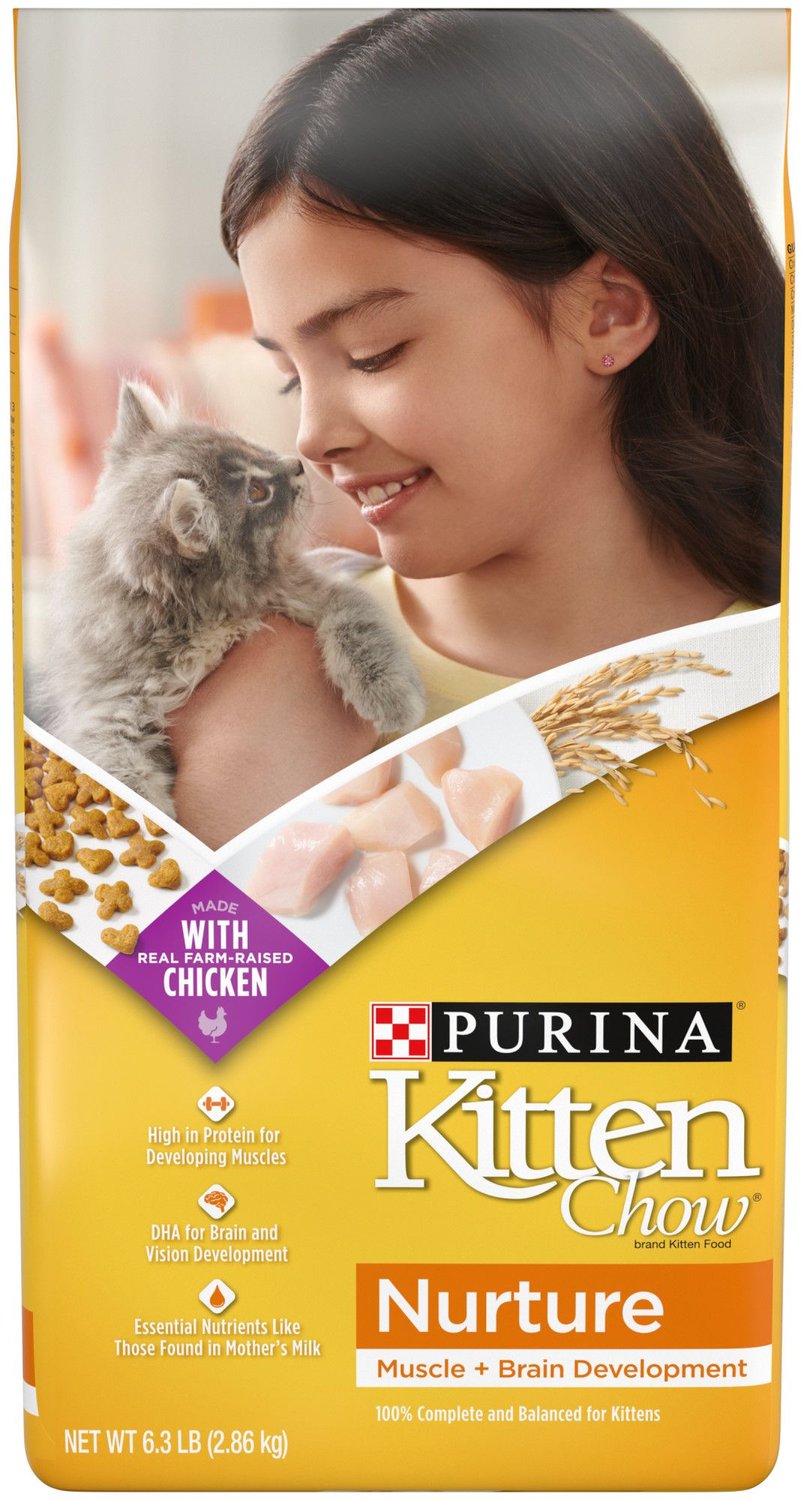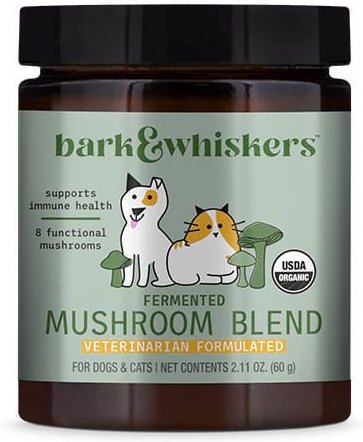Cats are curious creatures. For them, everything is either a plaything or something to eat. When outside, wandering around, they will be licking some things, sniffing others, and munching on a few. This curiosity often gets our four-legged fellas in trouble, especially if they end up gulping down a wild mushroom. Watching your cat eat mushrooms, one may get concerned, thinking: Can cats eat mushrooms? Are mushrooms safe for cats?
Most mushrooms are not toxic to our pets, but some can be deadly. According to the Animal Society for the Prevention of Cruelty to Animals (ASPCA), around 99 percent of mushrooms are not harmful to cats, but the 1 percent that is toxic can be life-threatening to our cats.
Cats and Mushrooms
When you are cooking mushrooms in the kitchen, your furball may come running to you, meowing and brushing against your leg, asking what’s cooking—and “give me some, please.” The temptation of letting your cat have some mushrooms may push you to allow your cat to have some, but the thought “can cat eat mushrooms?” may force you to guiltily divert your cat’s attention.
Refusing your cat a piece of mushroom, you might feel dejected. But believes us it was responsible of you to do that. It is always better to err on the side of caution than risk feeding something potentially harmful to your cat.
As compared to us humans, cats have different nutritional needs, and they process human food differently. Thus, you should be cautious while sharing human foods with your cat, as it could get them into trouble. You should always run it by your vet before feeding it to her.
Can Cats Eat Mushrooms?
Yes, cats can eat mushrooms. Most mushrooms that are safe for humans to eat are ok for our cats as well. That said, you should never make mushrooms an integral part of your cat’s diet. Mushrooms are only safe and healthy for cats as long as they are being fed sparingly—in small amounts, occasionally as a treat. Eating mushrooms in excess could lead to the development of gastrointestinal health issues in your cat.
Can Kittens have Mushrooms?
No, kittens cannot have mushrooms. Let alone mushrooms, kittens should not eat anything other than their traditional kitten food. Since young kittens have sensitive internals—yet to be fully developed—eating anything other than their traditional food would hurt their sensitive internals. So, you should not be offering any mushrooms to kittens. Instead, always go for food specifically designed for kittens.

|
|
|
Can Cats Eat Store-Bought Mushrooms
Store-bought mushrooms are perfectly safe for us humans as well as for our feline friends. However, you should not let your cat have a bowl full of mushrooms, be it store-bought or otherwise. Eating mushrooms in excess can be harmful to our purring fellas.

|
|
|
Can Cats Eat Cooked Mushrooms
If your cat seems to be fascinated by the aroma of mushroom risotto cooking in the kitchen, you might be drawn to sharing the mushroom that you cooked for yourself with your cat. While cooked mushrooms are perfectly fine to give your cats, the flavorings and seasoning added to them can be potentially dangerous for your cat. So, if you plan to share mushrooms with your cat, you should cook them without any additives and seasonings. And like raw mushrooms, while feeding plain cooked mushrooms to your cat, you should keep in mind that moderation is the key.
Can Cats Eat Turkey Tail Mushrooms
Yes, cats can eat Turkey tail mushrooms. These mushrooms are not only safe but also healthy for cats.
Turkey tail is one of the medicinal mushrooms that holds numerous health benefits not only for humans but also for our pets. Other medicinal mushrooms include maitake, shiitake, and cordyceps. Polysaccharides, proteins, and glycoproteins present in these mushrooms are useful for boosting the immunity of pets and are very effective as anti-cancerous and anti-inflammatory agents, according to VCA hospital. Though we lack scientific evidence, there is ample anecdotal evidence to substantiate that medicinal mushrooms are effective in treating cancer.
Why Do Cats Like Mushrooms?
Watching our cats gobbling up mushroom caps, we are often awestruck, wondering why cats—obligate carnivores—even crave mushrooms.
Let’s solve this mystery once and for all.
In the wild, cats are scavengers. They have to hunt and forage for proteins crucial for them to thrive and stay in shape. Cats mostly get their protein by preying on animals lower in the food chain. But on their unlucky day, when they are not able to catch prey, they have to look for non-meaty sources of proteins.
Looking for these proteins, cats often come sniffing for mushrooms, loaded with glutamate, an amino acid. This glutamate gives mushrooms the umami flavor, which can be perceived by cats. While cats are sweet-blind, they do have receptors for detecting the savory umami flavor of amino acids. This means that cats apparently craving mushrooms are actually foraging for proteins.
Are Mushrooms Bad For Cats?
No, most of the mushrooms are not bad for cats, but some wild mushrooms can be deadly for cats. As discussed above, around 99 percent of the mushrooms pose little to no toxicity concern to cats, but the 1 percent that is toxic is quite hard to differentiate. Therefore, unless you are a seasoned mycologist, you should neither eat a random mushroom yourself nor let your cat have it.
Experts suggest that if you are not a mycologist, every mushroom that you find growing in your backyard or somewhere in the park should be assumed as poisonous. This means that you should only give store-bought mushrooms to your cat and that too in small amounts.

|
|
|
How Lethal is Mushroom Poisoning?
Eating a poisonous mushroom or too much of a store-bought mushroom can lead to mushroom poisoning in cats. The severity of the mushroom poisoning depends on the number of mushroom caps and the type of mushroom they consume—or have consumed. It could range from mild gastrointestinal pain that will pass with time on its own to extreme sickness, requiring hospitalization and sometimes leading to their demise. If you see your cat nibbling on a freshly grown mushroom in the backyard, you should immediately take her to the vet. But what if your cat takes a bite when you are not looking? In that case, you should look for signs of sickness.

|
|
|
Signs of Mushroom Poisoning in Cats
Cats are good at hiding their signs of sickness and vulnerabilities. This is the reason that most cat parents fail to recognize that their cat has been sick. Thus, it is advised that feline lovers familiarize themselves with the signs your cat is sick. This will help them recognize if there is something wrong with their cat.
As far as mushroom poisoning is concerned, you need to familiarize yourself with the following signs:
Gastrointestinal Problems
After consuming certain types of mushrooms, your cat may develop gastrointestinal issues such as vomiting or diarrhea. Your cat will start exhibiting these signs of sickness within a few hours of consumption of toxic mushrooms. While you do not have to worry about mild vomiting and diarrhea, if it does not go away after some time and your cat’s health seems to be worsening—leading to dehydration and electrolyte imbalance—you should ring your vet. To restore the fluid level and electrolyte balance, the vet might have to hospitalize your cat and start immediate fluid therapy.
Liver Problems
Certain mushrooms affect the livers of our feline friends. Amanita mushrooms, infamously known as death cap and death angle, are deadly not only for humans but also cats. Consuming Amanita mushrooms can lead to liver poisoning in cats. According to VCA Hospital, your pet may look perfectly fine after the consumption of this mushroom or may exhibit some sign of sickness and then get apparently fine, giving their owners a false sense of assurance that there is nothing wrong with their cat. However, while these pets may apparently look perfectly fine, internally, they are getting weak, lethargic, and jaundiced. Hence, if your cat has eaten any random mushroom, you should immediately take her to the vet, even if there seems to be nothing wrong with your cat.
Neurological Effects
Ingestion of hallucinogenic mushrooms, also known as magic mushrooms, can make your cat unsteady on its feet and could also cause mild depressions. Consumption of these mushrooms also makes your cats over-sensitive to sound and touch. If your cat seems not to be herself, she probably has eaten magic mushrooms. You should prepare to take her to the vet.
Can cats eat mushrooms? Yes—they can. But not all types, and certainly not the wild ones unless you are a mycologist yourself.
If you are a cat keeper, you might be interested in more of what cats can eat and otherwise. Read more on Cat Food, where we discuss everything in detail.
Find out what other foods cats can eat or not eat:
